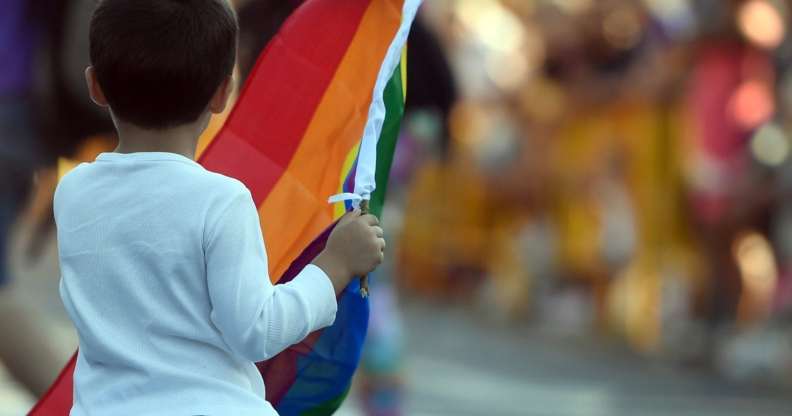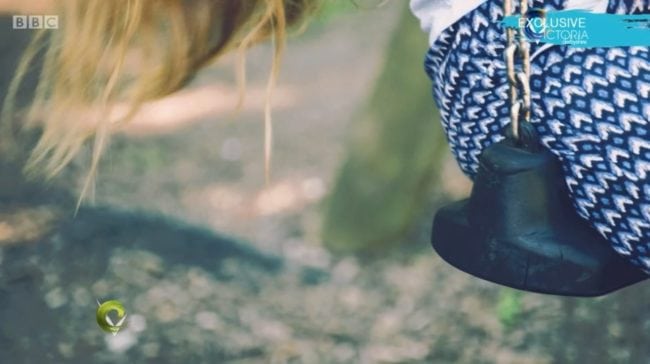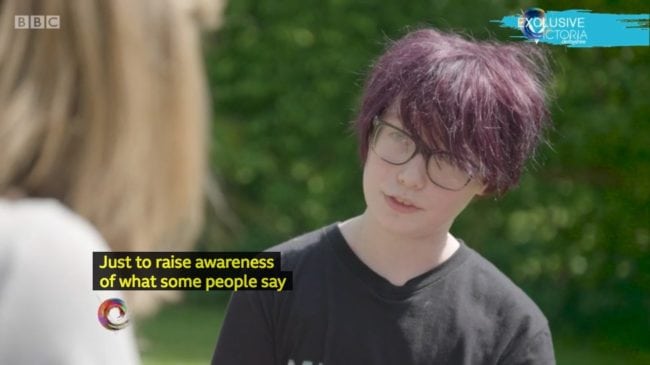300 transgender children a year choose to delay puberty

A child waves a rainbow flag during the WorldPride 2017 parade in Madrid on July 1, 2017. (Photo by Curto De La Torre/AFP/Getty Images)
Around 300 transgender children a year in the UK choose to take puberty-blocking drugs to give themselves more time to think about their gender identity.
The figure of children being prescribed injections to block sex hormones was reported by the BBC’s Victoria Derbyshire on Monday.
The puberty-blocking treatment, which is reversible, allows transgender children to relieve themselves of some of the anxiety associated with development of facial hair, breasts, or deepening of the voice, which may make it harder to transition to their preferred gender later in life.
“Most young people welcome the ‘blocker’ intervention as helping them to feel more comfortable in their bodies while holding future gender options open,” noted a study on gender dysphoria in children and adolescents by the Tavistock and Portman NHS Trust, the country’s main specialised centre on gender issues based in London and Leeds, published last week.
According to the study, more research needs to be done to understand the psychological benefits of the treatment on children of various age groups.

11-year-old Jessica talked to Victoria Derbyshire about her puberty-blocking treatment (Photo by BBC)
One 11-year-old child who identifies as a girl recently began the treatment, consisting of a monthly injection of the drug, and was happy with the results so far. “I’m happy I’ve been given [the drugs] because now I know that I won’t grow facial hair. I just don’t want a beard—I’m a girl,” Jessica told the BBC.
She is part of a growing number of children in the UK who choose to undergo the treatment, which was first allowed for under-16s on the NHS in 2011.
The Tavistock and Portman NHS Trust has also seen an increase in the number of minors who visit the clinic—2,519 last year alone, 25 percent more compared to the previous year, for an average of around 50 patients a week.
According to doctors, the increasing number of young people referred to the clinic is due to a variety of factors, including wider awareness of their services and conversation in society surrounding transgender issues.
For one of the young panelists discussing how it’s like to grow up transgender on the Victoria Derbyshire show, increased societal recognition also comes with dealing with hateful backlash. “It can be difficult to ignore hate,” Merrow Nyx said.

13-year-old Castiel Campbell received a horribly abusive text message by an anonymous sender (Photo by BBC)
One of the transgender children interviewed in the programme, 13-year-old Castiel Campbell, shared a chilling text message he received by an anonymous sender encouraging him to kill himself.
By having Derbyshire read the message out loud, the boy hoped to raise awareness about the gravity of the abuse trans people receive.
“People should just now we are humans” he said. “Just because we just don’t feel comfortable in our own bodies that’s not a valid reason for people to send us hate.”

